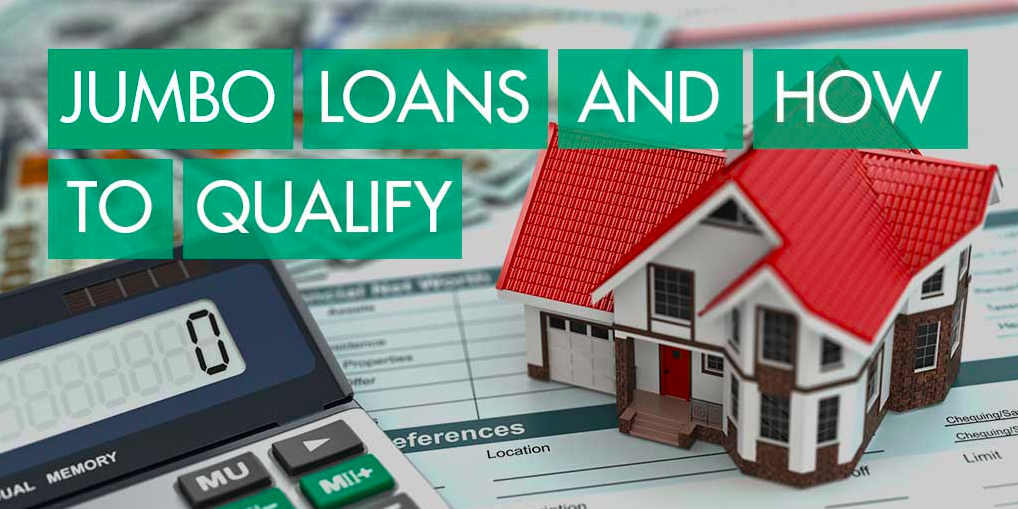A Jumbo Mortgage or Jumbo Loan is a Mortgage used to finance high-valued properties that are above the Federal Housing Finance Agency (FHFA) loan limits. The Jumbo Mortgage is also known as a non-conforming loan since it exceeds the conventional local conforming loan limits as determined by the Fannie Mae, Freddie Mac, and FHFA enterprises.
The average annual percentage rate (APR) of Jumbo Loans is often on par with conventional mortgages, while down payments are roughly 10% to 15% of the total purchase price. The size of the Jumbo Mortgage varies by geographical location, however, it is generally more than $766,550 in most parts of the United States of America and can be as high as $5 million.
The Jumbo Mortgage covers a larger-than-normal loan amount. These Loans can be used for primary homes, investment properties, and vacation homes. Most of the Mortgage Lenders offer the Jumbo Loans up to $3 million or $5 million. A Jumbo Mortgage is a Loan designed for a borrower who needs to finance a loan balance greater than conforming mortgage loan lending limits.
What Is Jumbo Mortgage?
A Jumbo Mortgage is a Mortgage Loan that exceeds a conforming loan limit set by the Federal Housing Finance Agency (FHFA) which oversees the Fannie Mae and Freddie Mac. The conforming Loans meet the requirements to be purchased by Fannie Mae and Freddie Mac, however, the nonconforming loans, Jumbo Loans, and Government-Backed Mortgage Loans do not.
Properties that exceed the loan limit set by the metro areas require the Jumbo Loan to finance. A Jumbo Mortgage or Loans has strict approval requirements. The borrowers need higher credit scores, larger down payments, and a lower debt-to-income ratio to get a jumbo loan as compared to Conventional Mortgage loans. Jumbo Loans are non-conforming Loans because these Loans Don’t follow the FHFA loan limits, however, some Jumbo Loans are still considered qualified mortgages.

How Do Jumbo Mortgage Loans Work?
The Jumbo Mortgage or Loans are not much different from the traditional mortgage. The payment schedule and other details of the Jumbo Mortgage are generally the same. The Jumbo Loans are available in a variety of terms including fixed-rate mortgage and adjustable-rate mortgage. These kinds of Loans typically have higher interest rates, firmer underwriting conditions, and require a larger deposit than conventional conforming mortgage Loans. The interest rates of Jumbo Loans differ from the conforming mortgage loan rates. The Maximum size of Jumbo Mortgage Loans varies by the borrower mortgage lender and location as do the exact qualifying guidelines.
What are the Jumbo Mortgage Loan Requirements?
The Requirements of Jumbo Mortgage Loans can vary significantly from Lenders to borrowers. Here below are some requirements for jumbo loans that borrowers can expect:
- Require a Higher Credit Score: To get a nod for a jumbo loan, Lenders require a minimum credit score of 680, however, some mortgage bankers are more restrictive. The Jumbo Mortgage presents greater risk and the Lenders may demand a better credit score than other types of Mortgage Loans.
- Lenders may demand Large Down Payments: The lenders may demand a down payment of 15% to 30% for Jumbo Mortgage Loans. If the borrowers have A down payment of at least 20%, then they have to pay private mortgage insurance (PMI).
- Require a low debt-to-income ratio (DTI): Typically lenders may require a Debt-to-income ratio (DTI) as low as 36% in Jumbo Mortgage Loans. Borrowers can get DTI by dividing their gross monthly income against their monthly debt payments.
- May be charged a higher interest rate: The Jumbo Loans pose more risk to the lenders, however, the borrowers may be expected to pay more to finance the Loan as many as one to two percentage points higher than on the conforming Mortgage Loans.
- Manual Underwriting: The Jumbo Mortgage Loans are manually underwritten, which means that, unlike the bulk of conventional or government-backed mortgages, they are not fed into a computer program that decides whether to qualify for the loan or not.
- Loan to Value Ratio (LTV): It is the measure of loan amount related to the property’s value. it is calculated by dividing the loan amount by the property’s appraised value or purchase price. The jumbo loan’s Loan-to-value Ratio (LTV) is stricter than for a conforming loan with rates of 80% or lower
- Cash Reserves: Normally Large cash reserves are needed for the jumbo mortgage loans to safeguard lenders from possible mortgage defaults. The Cash Reserves normally need to cover between 6 months to 12 months of the mortgage payments.
- Documentation: The Jumbo Mortgage Loans require additional Documentation to show proof of income and ability to meet Jumbo Loans down payments, closing costs, and reserves. However, the additional Documentation for Jumbo Mortgage includes assets, tax returns, P & L statements for business applications, proof of additional income, and other qualifications.
How To Apply For A Jumbo Loans?
The process to Apply for the Jumbo Mortgage Loans is similar to other types of Mortgages. Here below are step-by-step process:
- STEP I: like other mortgage loans, the borrowers need to choose a lender first. You can shop around to see who will give you the most favorable terms.
- STEP II: Once you have chosen a Lender, you can start the process of getting your initial mortgage approval.
- STEP III: Now provide your lender with documentation related to your finances and then they will examine how much you qualify for and at what interest rate.
- STEP IV: Now find a perfect property near you and start submitting the offer. A real estate agent will help you navigate the process, setting up a showing, handling the complete paperwork, and negotiating with the seller.
- STEP V: Once the offer has been accepted then your lender will get to work underwriting your loan. jumbo loans often require manual underwriting, which means the person will complete the entire process themselves rather than online.
- STEP VI: Your lender may order an appraisal to ensure your property isn’t worth less than the amount of money they’re lending you to purchase it.
- STEP VII: Once the appraisal and underwriting process is completed, your lender will tell you about closing the Jumbo Loans. The borrowers need to know how much cash to bring to closing to cover their down payment and closing costs, which will be detailed in Closing Disclosure.
Jumbo Mortgage Loans Reviews
The Jumbo Mortgage Loans help eligible borrowers to finance large home purchases. However, the borrowers have to pay more interest over time than with the conforming Mortgages. Here are some Pros and Cons of Jumbo Mortgage Loans:
Pros:
- The Jumbo Mortgage Loans allow you to borrow more than the Traditional Mortgage.
- The Jumbo Mortgage has competitive interest rates.
- The Jumbo Mortgage Loans give the best opportunity to purchase an expensive Home.
Cons:
- The borrowers needed higher credit scores to qualify for the Jumbo Mortgage Loans.
- The borrowers are required a larger annual income to apply for the Jumbo Mortgage.
- The borrowers need to have cash reserves to cover 6 to 12 months of payments.
Frequently Asked Questions (FAQs)
Question 1: Are there any additional costs or fees associated with the Jumbo Mortgage Loans?
Answer: The Jumbo Mortgage Loan is for a more expensive property and the borrowers will end up paying more in fees. The closing costs for the Jumbo Mortgage are similar to the conforming loan counterpart which is 2% to 5% of the home’s purchase price.
Question 2: How do I get the best Jumbo Mortgage Loan Rate?
Answer: If any borrowers are looking to take out a Jumbo Mortgage Loan, then they will need to make sure their credit score is very good to excellent. A strong credit score is crucial for getting the best mortgage rates.
The Bottom Lines
A Jumbo Mortgage Loan is a type of financing that exceeds the limit set by the FHFA and cannot be purchased, guaranteed, or securitized by Fannie Mae or Freddie Mac. The homeowners who are going to Apply for Jumbo Mortgage Loans must undergo more attentive credit requirements than those who are applying for Conventional Mortgage Loans.
